A great deal has been written on the topic of the skills required for pupils to be effective citizens in the world they will enter after school. The St Martin’s Preparatory School has given much thought to the teaching and learning of the skills required...
Much has been written on this topic, but there are certainly common threads and the following skills appear on most lists:
- Complex problem solving.
- Critical thinking.
- Creativity and imagination.
- Collaboration and teamwork.
- Cognitive flexibility and adaptability.
The International Baccalaureate is an examination which is written in many European countries and, indeed, across the world. What is fascinating, is what they expect their final learner profile to be, as a result of the education they have experienced. They suggest that students should be conditioned by their learning to be inquirers, thinkers, open-minded, risk takers and reflective, amongst others.
At schools it can no longer be business as usual and so, in order for pupils at St Martin’s Prep to be exposed to some of the skills mentioned above, puzzle challenges to both teachers and pupils have been introduced into the curriculum.
In 2018 it became apparent that the newly appointed Executive Headmaster enjoyed visiting the Prep School and in particular the mathematics classes. It was not unusual, and is still not unusual, to have him suddenly appear in a class and give the pupils a quick puzzle or challenge to work through.
These unexpected visits scared some, energized others and got some parents and pupils really thinking. It must have been the perplexed look on the children’s faces that lead him to suggest that a puzzle period be incorporated into the timetable.
It was decided that Grade 4 would be exposed to various English puzzles, Grade 5 would play chess, Grade 6 would do number puzzles and Grade 7 coding.
The Grade 4s look forward to a Wednesday when they tackle crosswords, crack codes, solve riddles, find words and try to decipher rebus puzzles. What a meaningful way to build vocabulary, improve spelling, expand general knowledge and develop comprehension skills while having fun.
Why chess in Grade 5, was the question some people asked? Chess develops problem solving skills, abstract reasoning using “if and then…..”scenarios, calmness under pressure, patience, creative thinking, pattern recognition and strategic planning. Most importantly it teaches how to execute a strategy. The skills mentioned are essential for success in mathematics.
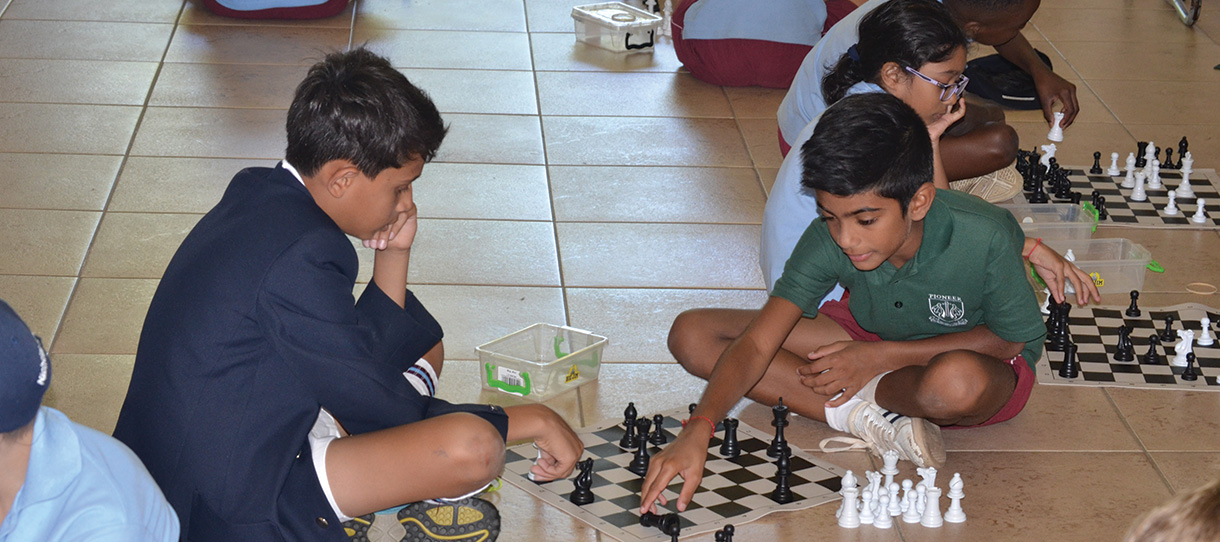
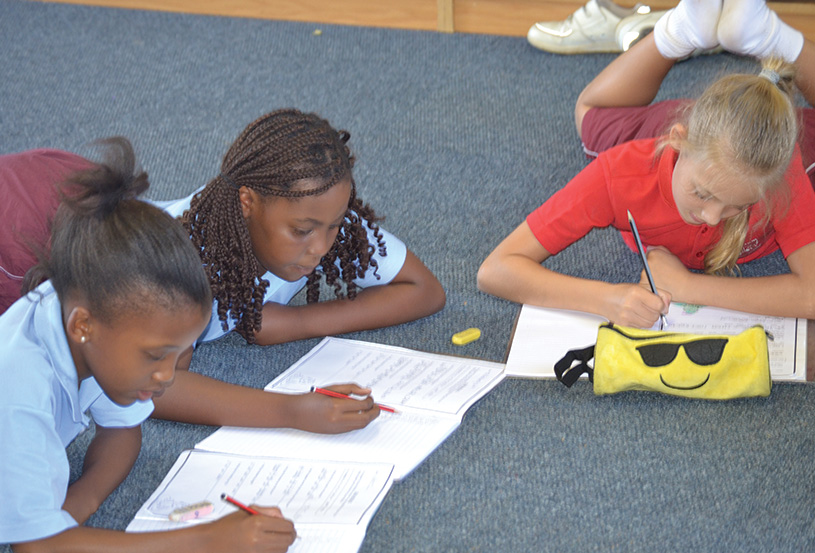
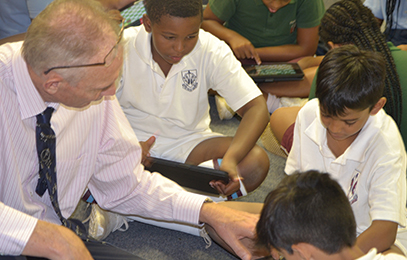
“Comments from our pupils are a true indication that they are beginning to think about their thinking. Metacognition in action, how wonderful!”
Michelle Myburgh
Principal
The Grade 6 pupils tackle number puzzles that include strategy games, puzzles and non-routine problem solving in mathematics. The skills that these puzzles will develop include numeric agility, complex problem solving and persistence. “Pupils need to be like Bull Terriers – persistent and determined to tackle the number puzzles” Says Thomas Hagspihl.
The pupils in Grade 7 learn how to use basic computer programmes using Sketch. Coding enables pupils to gain logic and critical thinking skills. Pupils are learning what it’s like to approach a problem the way a software engineer does, with logical, computational thinking.
These innovations sound fun for the pupils but are rather daunting for teachers who find themselves in spaces that they are not too comfortable in. Teachers may not like to admit when they don’t know the answer. We are fortunate to have staff members who are open to change and growth so they too are developing the same skills as the pupil in their class as they present these lessons to their pupils.
“Never limit the children you teach to your own knowledge,” Nicole Bell, Grade 6 teacher, says that this phrase that turned a Senior Primary English teacher’s fear of maths puzzles into a challenge that, initially, she was terrified to undertake. The concepts and way of thinking were so far removed from her specialized subject that she questioned whether she would have the ability to teach the number puzzles or not.
“For many teachers, our confidence lies in what we know, and we believe that it is our responsibility to transmit that very knowledge to the children in our care. However, what happens when you are meant to impart something to them that you have not even dipped your toe into? The answer, I found, after battling with these puzzles over the December holidays in preparation for these lessons, was to not always seem like I had it altogether. To question, to doubt, to struggle, to simply have no idea – is this not part of being human?”
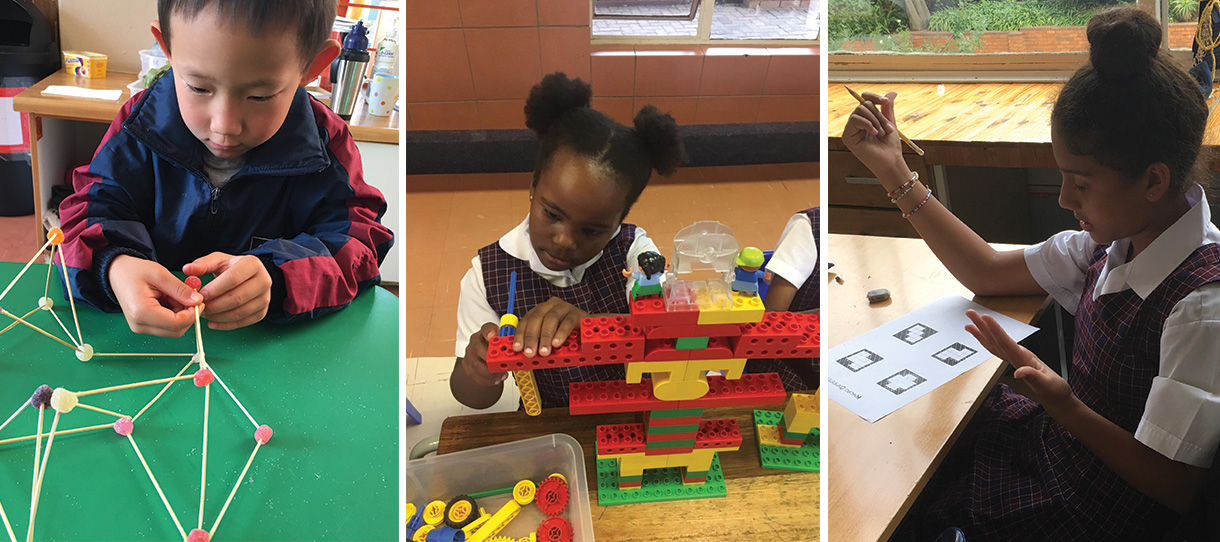
In truth, teachers are regarded as having some sort of superpower; in their own minds, and probably the young minds they are moulding, are meant to know EVERYTHING.
Nicole says, “I came to realize that, while through these lessons we are trying to teach the pupils tenacity, perseverance and diligence, I would be doing them an injustice if I did not share my own vulnerabilities with them. This meant that in every puzzle lesson, I would attempt the activity the children were completing. I would share my victories with them, ask for some guidance from those who got it and share my frustrations when I simply could not find an answer. This also meant we got to celebrate as a whole when a solution was found. Teachers too can find satisfaction in overcoming an obstacle.
“To teach ‘thinking’ is a difficult concept and this is one that has been ‘spoon fed’ over many years, however, with this new approach to problem solving, children are encouraged to think for themselves and pursue success at their own speed while learning through the entire process.
It is still in the early stages of development, but it can be said with confidence that both pupils and teachers alike have grown during these lessons. I look forward to seeing how it continues to elevate their thinking through the rest of the year, and how they put this GRIT into all that they do.”
By incorporating the puzzle period into the timetable, it ensures that all pupils are exposed to the challenges the lessons bring. Chess club has always been popular with the boys and it is delightful to see the girls enjoying the game too. By making chess compulsory, we are building a skill that many of pupils lack, that is perseverance. The teachers have been obligated to upskill themselves because the lesson is part of their timetable.
“This has been a great way to bring play into the intermediate phase classrooms. At a recent IEB meeting we were reminded about the importance of using games in our classrooms. We are repeatedly reminded that generation Z and Alpha pupils learn differently and this is probably why our pupils have become fully engaged in the puzzle lessons.”
“Comments from our pupils are a true indication that they are beginning to think about their thinking. Metacognition in action, how wonderful!” says Michelle Myburgh, Principal.

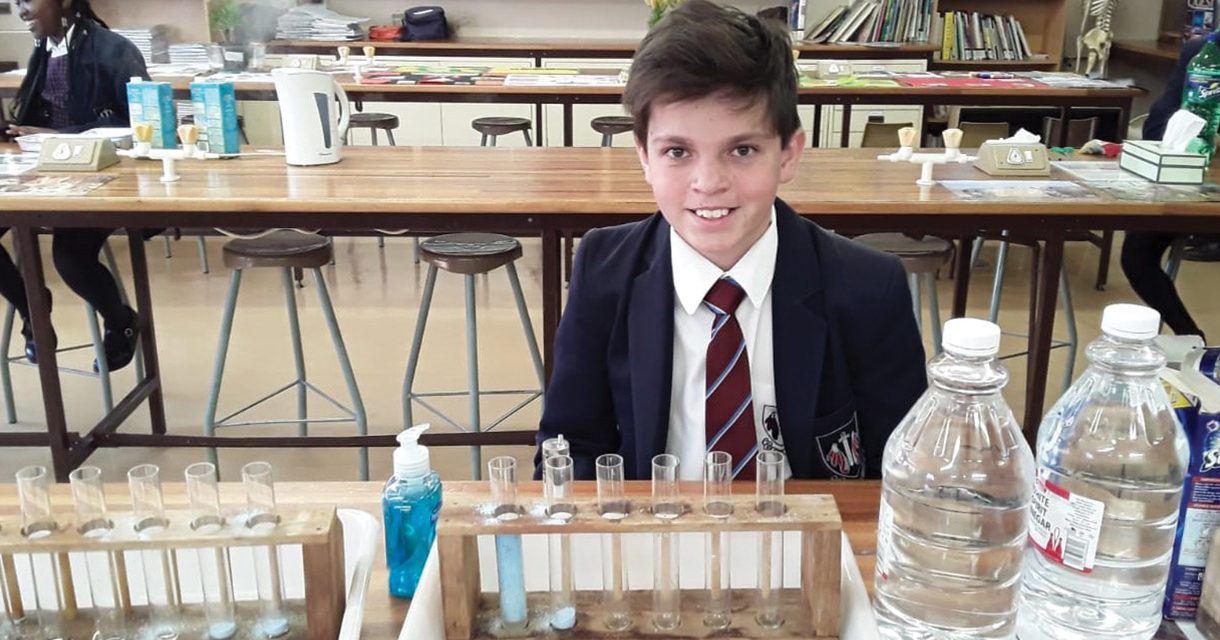


























0 Comments